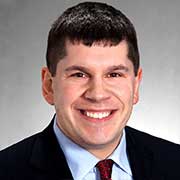There are many condominium associations in the City of Boston. Just as the city itself contains many unique and special neighborhoods, those neighborhoods are occupied by many unique and special condominium buildings and types of condominium associations, large and small, new and old. However, every association has unit owners, residents, trustees (or directors or managers), and most associations have a property manager. Condominium living, especially in most Boston condominiums, is unique and different from residing in a single-family home, and it is important for each party to understand the scope of their role.
Regardless of role, each board member, property manager, unit owner, and resident should have some familiarity with the governing documents of their condominium and Massachusetts General Laws, Chapter 183A, the Massachusetts Condominium Act.
In order to have harmonious living in a condominium, each individual at a condominium must understand their role. The roles of the board member, property manager, unit owner, and resident in a Boston condominium are quite different, and those roles may even vary somewhat depending on the physical style of the condominium.
Regardless of role, each board member, property manager, unit owner, and resident should have some familiarity with the governing documents of their condominium and Massachusetts General Laws, Chapter 183A, the Massachusetts Condominium Act. Board members and property managers should know and understand the governing documents and Chapter 183A in their entirety, from the definitions of units and common areas to the powers of the board, and everything in between. Unit owners should be especially familiar with the provisions that affect them most, which include unit insurance requirements, the definitions of common areas, and the boundaries of their units and any limited common areas that they as unit owners are responsible to maintain. Unit owners and residents must understand any restrictions on the use of their units, and any rules and regulations with regard to use of the common areas or common services.
While Boston is a city with many older condominium governing documents that may be difficult to understand or poorly drafted, board members and property managers should rely on association counsel and other experts, such as insurance agents, to help interpret provisions that may be difficult to understand. The governing documents of the condominium and Chapter 183A provide a framework for the roles that a board member, property manager, unit owner, and resident serve.
Board members serve in decision-making, operations, oversight, and enforcement roles for their condominium association. They also serve as communicators, whether with property management staff or with their fellow board members, unit owners, and residents. This communication role is perhaps the most important role that board members serve, but can also be the most taxing for board members.
Board decision making is a very important function of this role, as each association requires decisions to be made by board members on a regular basis, requiring regular participation, responsiveness, and engagement. Decision making is important as an interface with property management, as an association’s property manager will require board members to make decisions on many matters, and may require responses quickly, especially for any emergency matters.
In their operations capacity, board members are responsible for repairing, maintaining, and replacing the common areas of their condominium. In Boston, this role can include everything from reviewing a simple landscaping proposal to reviewing, hiring, and approving multiple unique contractors for large-scale projects like historic roof or masonry replacement on multi-story condominium buildings requiring scaffolding, or even crane services.
In their oversight role, board members are responsible for association financial management, including the review of account statements, signing of checks, setting of common charges, reviewing and approving the condominium budget, planning for reserves, and initiating lien enforcement actions against delinquent unit owners. They are also responsible for ensuring that they have the correct master policies of insurance, including, for example, property, liability, and directors’ and officers’ insurance coverage. This role can extend to the oversight of legal issues, including authorizing legal action or litigation by association counsel when necessary.
As enforcers of their condominium’s governing documents, board members are responsible for confirming violations of the documents and enforcing those documents, including sending notices to unit owners regarding violations or working with management or association counsel to do so. Enforcement of governing documents is an important function of a board member, especially in condominiums in Boston where many condominium residents live in apartment-style buildings where noise, smoking, and other issues can be particularly common and problematic for residents.
While the board member roles may seem to be quite involved, board members can share these roles with management, and most Boston condominium boards do employ a property manager to assist with their roles.
A property manager serves as an advisor to the board members in decision making, and helps board members to communicate with unit owners, and to fulfil the board’s operations, oversight, and enforcement roles. While each property manager has a slightly different relationship with each association board with which they work, property managers all work at the direction of the board, and typically serve to assist the board with each of these roles in some capacity, and boards are typically empowered to delegate action items.
Managers act as advisors when board members need to make decisions, bringing their experience and knowledge to board members who may not have the professional background or familiarity with issues facing the condominium in order to make informed decisions about complicated projects, contractor issues, or even governing document enforcement. Property management staff, especially in larger Boston condominiums, typically serve as the first line of communication for residents to interface with the board, fielding resident questions and complaints about day-to-day condominium issues, responding and solving smaller issues as is practicable and necessary, and passing along the most important items to the board.
Managers also fulfil other roles that may otherwise be taken on by board members, including in the day-to-day operations of a condominium, from ensuring that the front door security system is working or fixed, to confirming violations of the governing documents, to locating appropriate contractors and obtaining bids for projects, and the like. Most property managers are also responsible for paying invoices to condominium vendors, signing checks, and drafting the budget for the board’s approval. Property managers also serve as enforcers of the condominium documents at the direction of the board, including sending out violation or warning notices. By supplementing and helping to fill these roles for board members, property managers reduce the overall burden on board members.
Finally, with regard to unit owners and residents, they serve very important roles as well, as neighbors and citizens of a condominium. It is the responsibility of the unit owner to ensure that their unit is properly maintained so that it is not damaging other units or the common areas, that they and their unit occupants are aware of and are complying with the terms of the governing documents of the condominium and Chapter 183A, and that their common charges are paid on time and in full. Residents and owner-occupant unit owners should embrace the role of good neighbors, complying with rules and regulations and restrictions on use of units to ensure that other unit owners can enjoy living in their units.
Unit owners must also embrace their important role in condominium governance when they are called upon as unit owners, whether it is for purposes of obtaining quorum at an annual or special meeting, for voting or running in elections for board positions, or for voting on amendments to the governing documents. Unit owners also need to remain engaged with the board generally, reviewing and responding to board notices when sent by the board or the property manager, and addressing violations related to their units quickly.
While everyone in Boston is busy, it is important to the health, property values, and overall wellbeing of any size Boston condominium that the condominium’s citizens remain engaged. To do so, each of the board members, unit owners, residents, and property management staff must embrace this unique form of living and the roles it carries for each of them.


